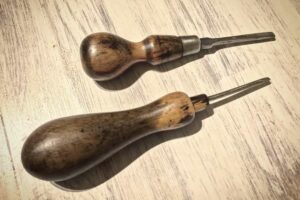If you’re interested in antique pocket watches, you may find it challenging to identify and value them. However, with the right information and tools, you can easily spot the age, brand, and worth of your pocket watch. In this guide, we will provide you with all the essential tips and tricks to help you identify and value antique pocket watches.
Antique pocket watches are a fascinating piece of history that can be worth a lot of money. But, not all antique pocket watches are valuable. Knowing how to identify and value antique pocket watches is crucial when buying or selling them. This guide will give you a comprehensive understanding of how to identify and value antique pocket watches. We’ll cover everything from the design and materials to the serial numbers and brands that can help you determine the age and worth of your antique pocket watch.
Table of Contents
History of Antique Pocket Watches
Pocket watches have a rich history dating back to the 1500s. The first pocket watches were heavy and difficult to wind, which made them unpopular. However, in the 1700s, makers began producing thin, flat, and fancy pocket watches, which made them more usable and trendy. By the 1800s, pocket watches had become a common accessory for both men and women. They were often given as gifts and used as fashion accessories.
Peter Henlein and the First Pocket Watches
The first pocket watch is attributed to Peter Henlein, a German locksmith who created a small, portable clock in the 16th century. Henlein’s pocket watch was a pendant watch that was worn around the neck. It was small and portable, making it a popular accessory for travelers.
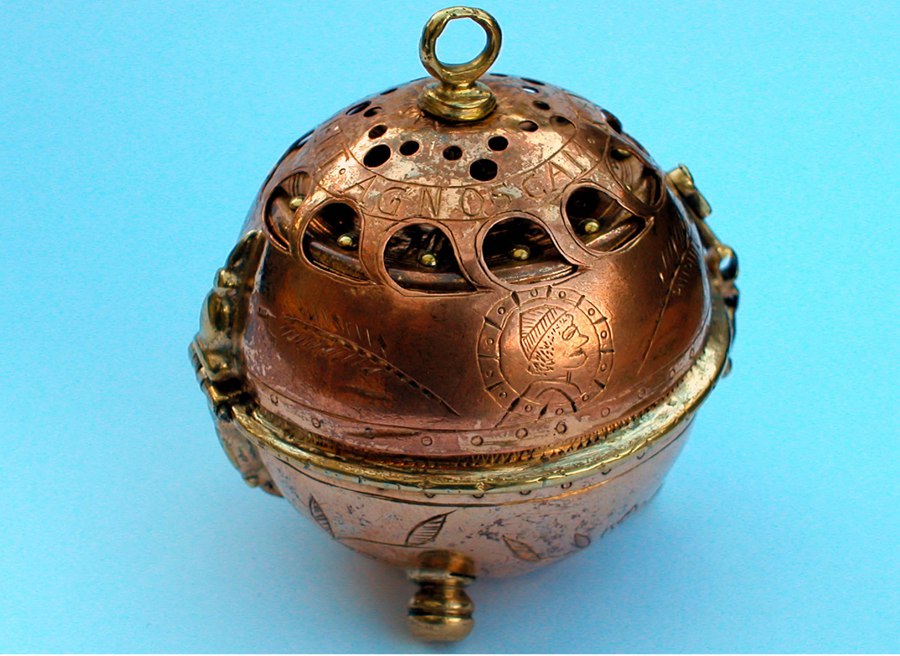
Evolution of Pocket Watches
Over time, pocket watches evolved into more complex and sophisticated timepieces. In the 1800s, manufacturers began using gold plating and jewels to enhance the appearance and accuracy of pocket watches. The introduction of the lever escapement by Thomas Mudge in 1755 made pocket watches more precise.
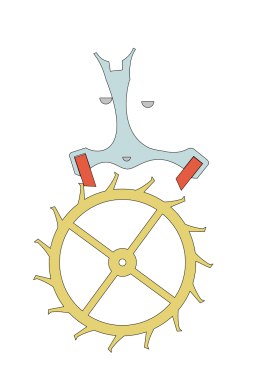
American watch companies, such as Elgin and Waltham, became popular in the late 1800s and early 1900s. These companies produced high-quality pocket watches, including railroad pocket watches, which were used by train conductors to keep accurate time.
Pocket watches were made in a variety of styles and materials, including open-face and demi-hunter cases, and were often personalized with engravings and logos. Pocket watches also came in different sizes and shapes, and were powered by key-wind or stem-wind movements.
Authenticity and Value
When identifying and valuing antique pocket watches, it is important to consider the manufacturer, brand, quality, materials, movements, and serial numbers. Railroad pocket watches and those made by reputable brands, such as Elgin and Tissot, are often highly valued by collectors.
Authenticity can also play a role in the value of an antique pocket watch. Look for stamped markings and logos on the watch to ensure it is authentic. Pair-cased and skeleton pocket watches are also highly sought after by collectors.
In conclusion, antique pocket watches have a fascinating history and are highly valued by collectors. By understanding their evolution and considering their authenticity and value, you can appreciate the craftsmanship and beauty of these timeless timepieces.
Top 5 Antique Pocket Watch Brands
Patek Philippe
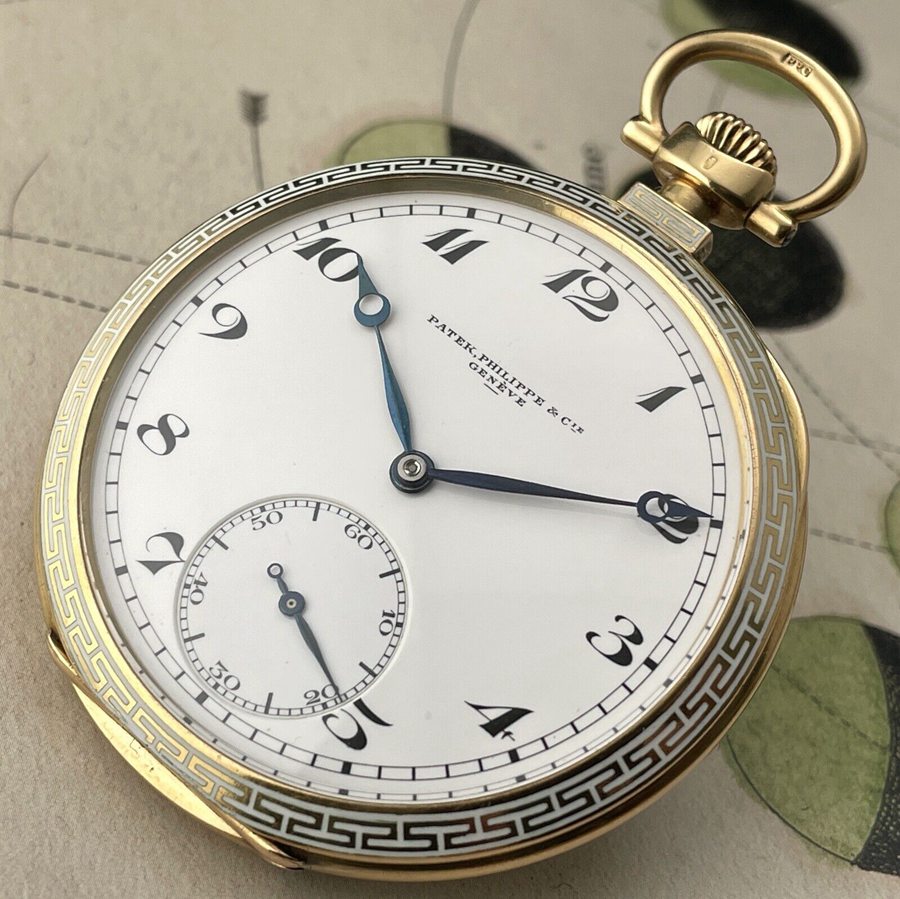
Patek Philippe is a renowned Swiss luxury watch manufacturer, known for its high-quality craftsmanship and timeless designs. Founded in 1851, their antique pocket watches are a prized possession among collectors. When searching for a Patek Philippe pocket watch, pay attention to the fine details, such as the engravings, dial design, and movement. Some of their most sought-after models include the Calatrava and the Perpetual Calendar pocket watches.
Vacheron Constantin
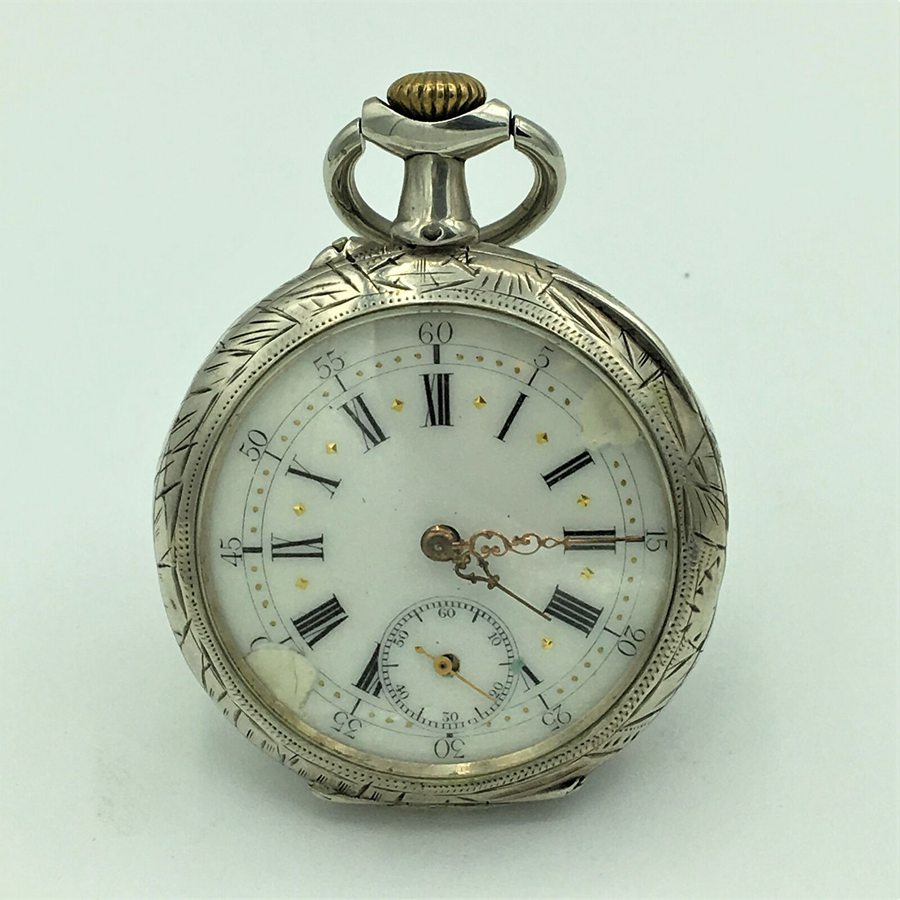
Vacheron Constantin is one of the oldest and most respected watch manufacturers in the world. Established in 1755, this Swiss brand embodies the classic elegance and finesse of antique pocket watches. As a collector, you can find a wide range of Vacheron Constantin pocket watches, from simple time-only pieces to those with intricate complications. The Ref. 57260 Pocket Watch is a notable example, showcasing exceptional craftsmanship and design.
Breguet
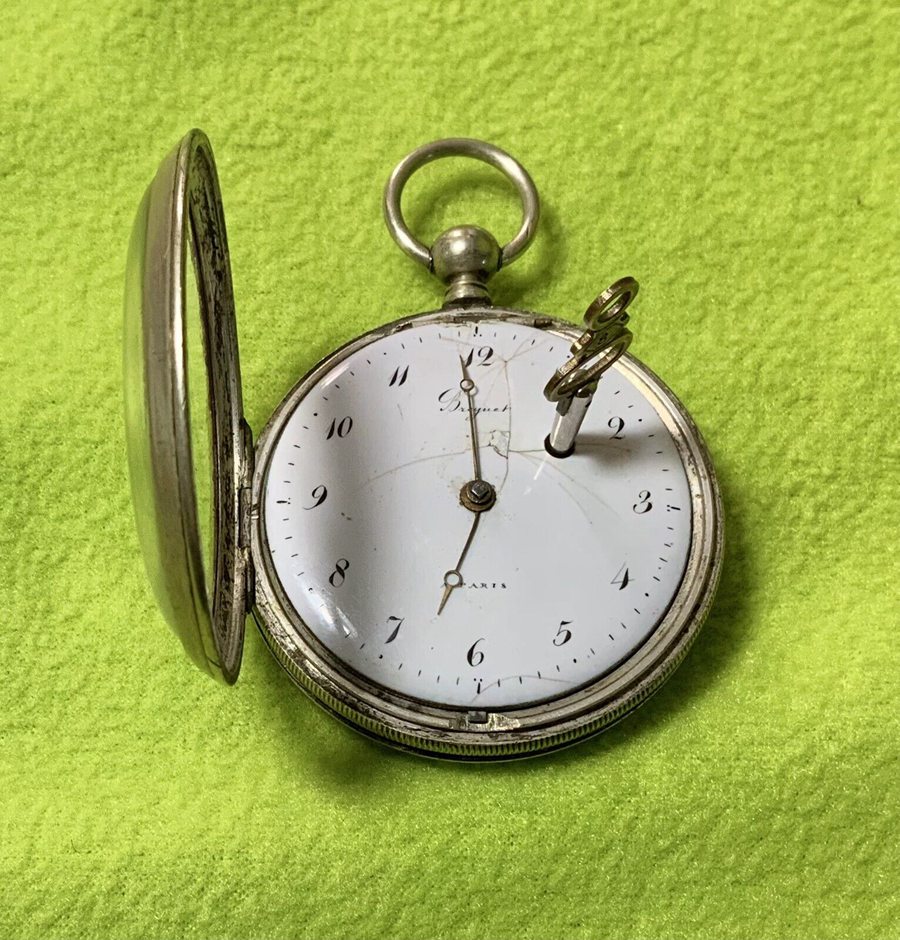
Breguet, founded in 1775 by Abraham-Louis Breguet, is another prominent Swiss watchmaker with a rich history in producing antique pocket watches. Breguet’s innovations, such as the tourbillon and the self-winding “perpetuelle” mechanism, are still revered today. When looking for a Breguet pocket watch, examine the guilloche dials, blued-steel hands, and engine-turned cases that contribute to its refined aesthetic. Popular models include the Breguet No. 160 “Marie Antoinette” and the Breguet Classique Pocket Watch Collection.
Audemars Piguet

Audemars Piguet, a Swiss watchmaker founded in 1875, has left a lasting impression in the world of luxury timepieces. Although primarily known for their iconic Royal Oak wristwatches, their antique pocket watches showcase intricate details and exceptional engineering. Keep an eye out for their hallmark characteristics, such as the octagonal case design and beautifully decorated movements. The Classique Pocket Watch is a timeless representation of Audemars Piguet’s craftsmanship.
Longines
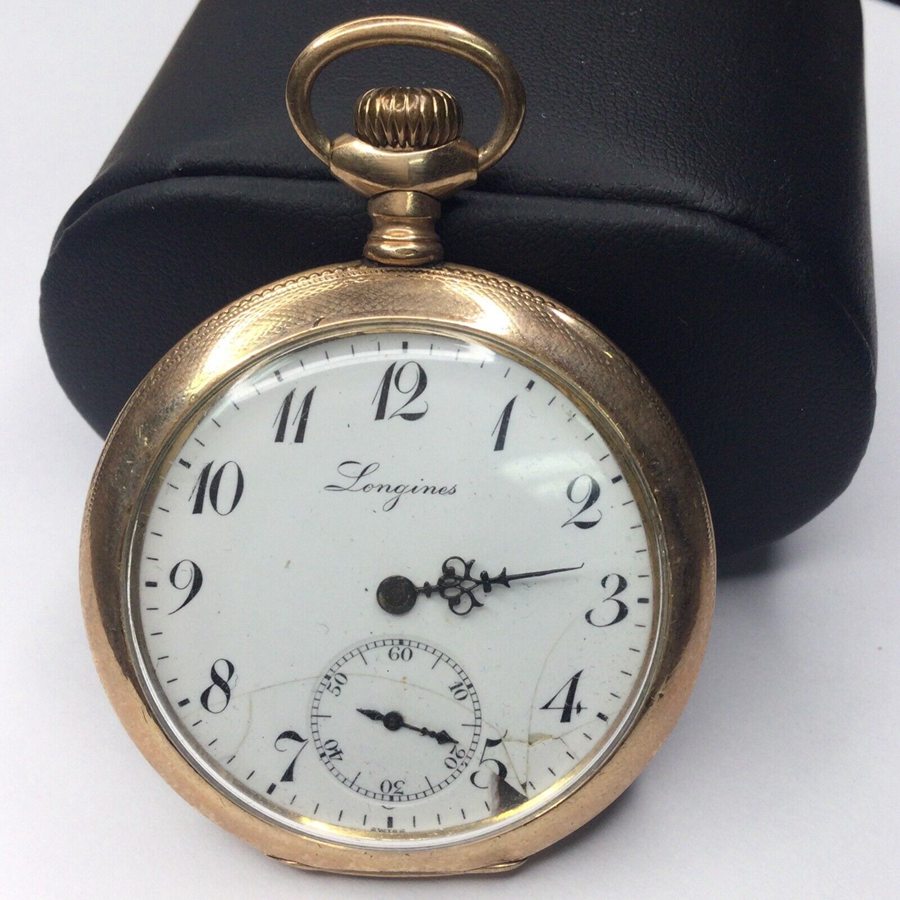
Longines, another respected Swiss brand, was established in 1832 and has a long-standing history in producing high-quality pocket watches. Longines pocket watches often feature a clean design with symmetrical sub-dials and subtle decoration. With a focus on precision and elegance, their antique pocket watches are perfect for collectors who appreciate functional beauty. The Longines Equestrian and Navigation pocket watches are prime examples of the brand’s style and reliability.
Remember to keep an eye out for these top five antique pocket watch brands when building or expanding your collection. Make sure to carefully examine the watch’s craftsmanship, complications, and unique characteristics that make each brand stand out. Happy collecting!
Next 5 Exceptional Brands
Omega

Omega is a prestigious antique pocket watch brand, known for its exceptional craftsmanship and high-quality materials. As you explore Omega’s offerings, you will find a variety of designs and styles catering to different tastes, preferences, and time periods. The brand has a rich history, with many of their vintage pocket watches becoming prized possessions and valuable investments.
Waltham
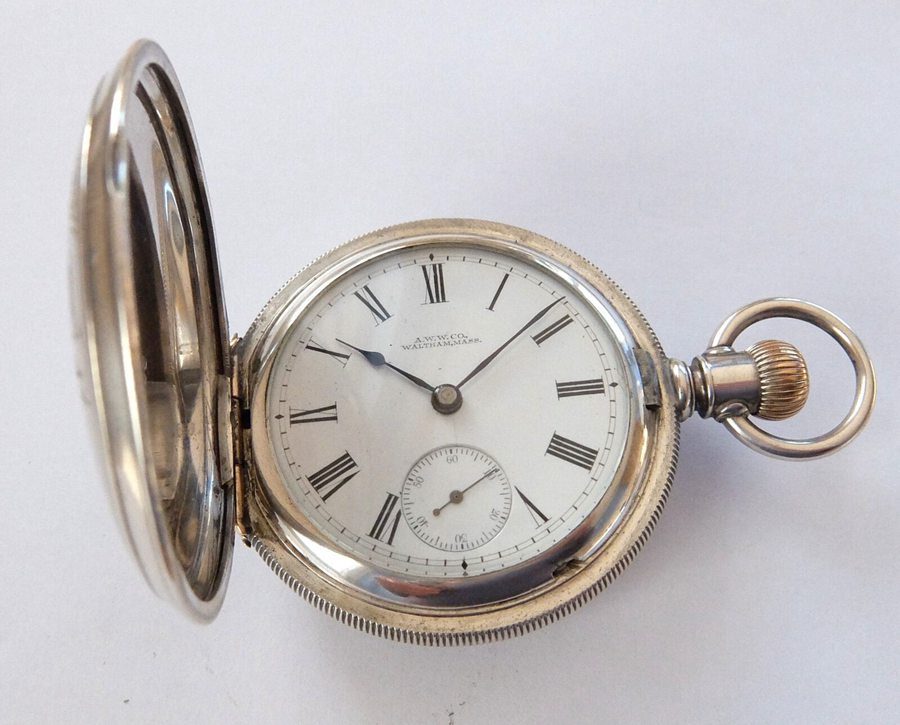
Waltham is another top watchmaker with its roots in 19th-century America. They were the first company to manufacture pocket watches in the United States, and their dedication to precision and innovation has left a lasting mark on the industry. When examining Waltham pocket watches, pay attention to their movement designs and various finishes, as these are unique features worth seeking out in antique watch collections.
Elgin

Elgin is a classic American watch company, known for its exceptional pocket watches dating back to the mid-19th century. As you delve into the Elgin brand, you’ll find a range of beautifully-crafted timepieces with intricate details and superior workmanship. Some notable aspects of Elgin watches include their unique serial numbers and movements, which make them particularly sought after by collectors and enthusiasts alike.
Hamilton
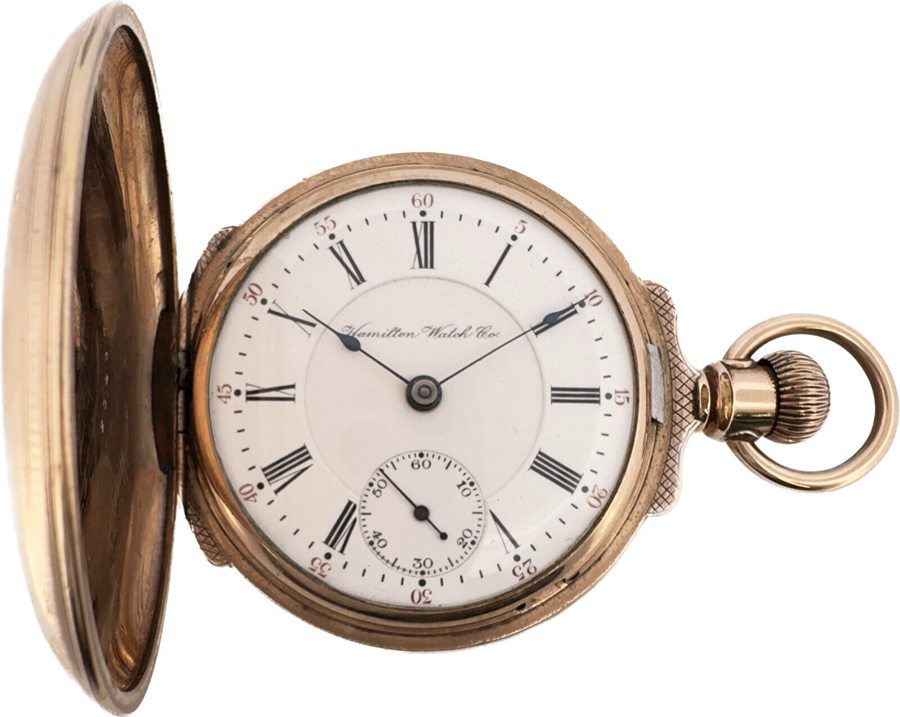
Hamilton is another iconic American watch brand that produced high-quality pocket watches. Established in 1892, the company quickly gained a reputation for designing accurate and reliable timepieces for various industries, such as the military and railroad sectors. As you assess Hamilton pocket watches, consider their finely-crafted movements, elegant designs, and solid materials that reflect the brand’s history and legacy.
Illinois
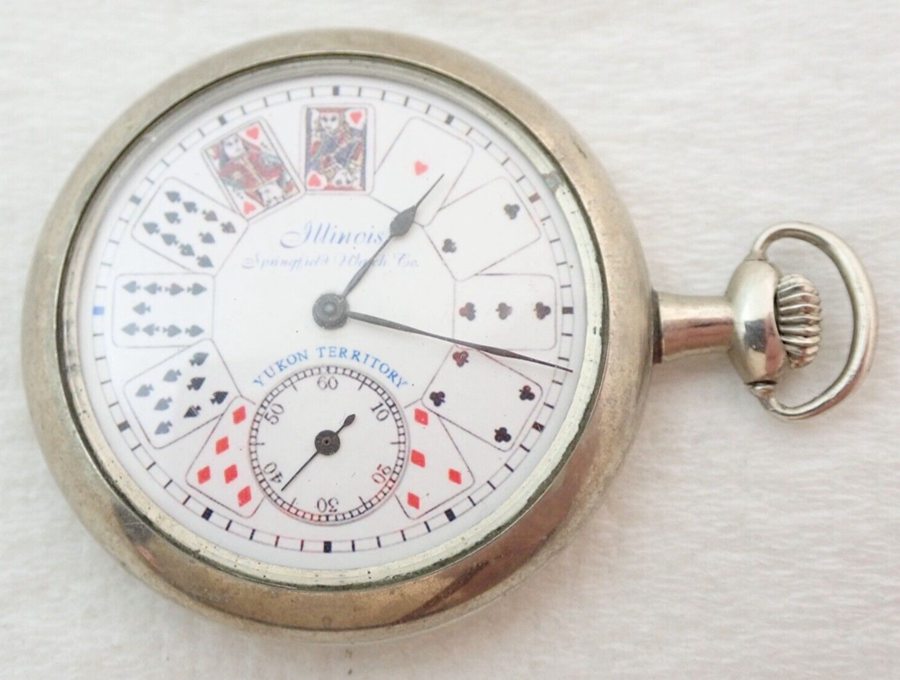
Illinois Watch Company ranked among the leading American watch manufacturers of the early 20th century. They were known for creating pocket watches with a blend of artistry and technical innovation. While exploring Illinois pocket watches, notice their meticulous attention to detail and design, with various case styles, dial designs, and movement types that capture the spirit of the era they represent.
Additional 5 Antique Pocket Watch Brands to Consider
In this section, you’ll find information on five other antique pocket watch brands worth considering for your collection: Girard-Perregaux, Tissot, IWC Schaffhausen, Jaeger-LeCoultre, and Zenith.
Girard-Perregaux

Girard-Perregaux, a Swiss luxury watch manufacturer with production dating back to 1791, built a reputable name in the market with its innovative and high-quality timepieces. They excelled in creating intricate designs and exclusive features across their diverse watch range. As you explore this brand, look for its signature three gold bridge tourbillon design in antique pocket watches. They symbolize the company’s commitment to artistry and accurate timekeeping.
Tissot
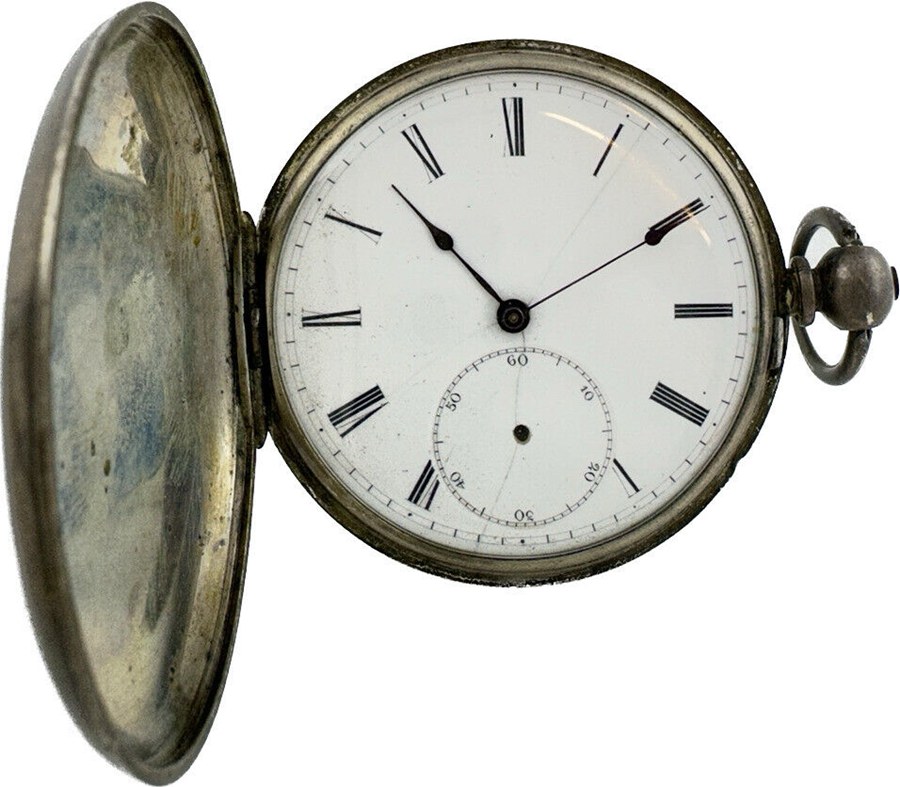
A leading name in Swiss watches since 1853, Tissot is known for its diverse range of luxury watches and cutting-edge watchmaking technology. During the heyday of pocket watches, Tissot produced some remarkable pieces, characterized by:
- Elegant and distinctive designs
- Precise movements
- Exceptional craftsmanship
These vintage Tissot pocket watches are a great addition to your collection as they mirror the brand’s enduring legacy in the watch industry.
IWC Schaffhausen
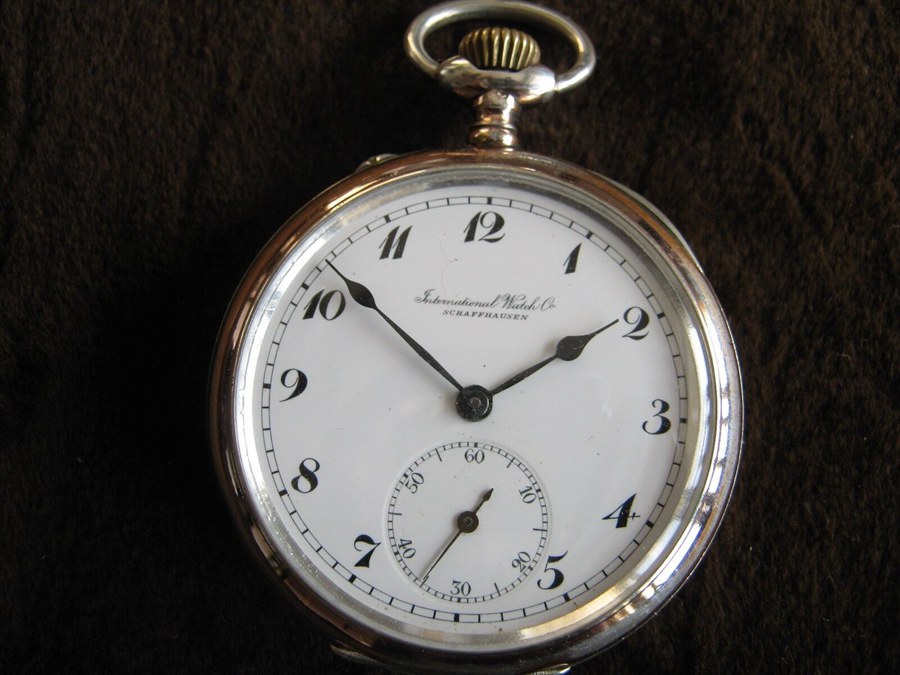
Founded in 1868, International Watch Company (IWC) Schaffhausen is another Swiss watch manufacturer that has earned a solid reputation for crafting high-quality pocket watches. As you explore antique IWC pocket watches, be prepared to find:
- Impeccable craftsmanship
- Innovative complications, such as chronographs and calendars
- Reliable and accurate movements
Seek out IWC Schaffhausen pocket watches if you value precise timekeeping and sophisticated designs.
Jaeger-LeCoultre
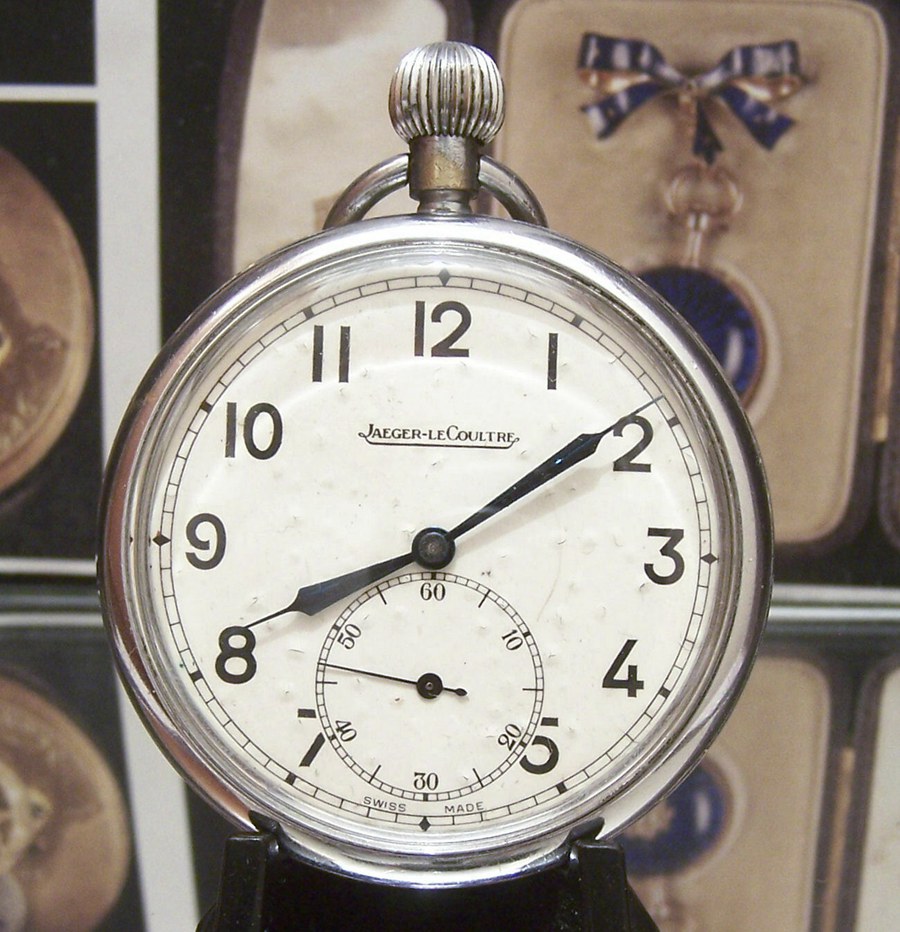
Established in 1833, Jaeger-LeCoultre is a renowned Swiss watch brand known for its mastery of complications and high-quality timepieces. Their antique pocket watches boast:
- Unique and intricate designs
- Advanced complications, such as minute repeaters and perpetual calendars
- Precise and durable movements
These exquisite Jaeger-LeCoultre pocket watches are sure to be a prized addition to your antique watch collection.
Zenith
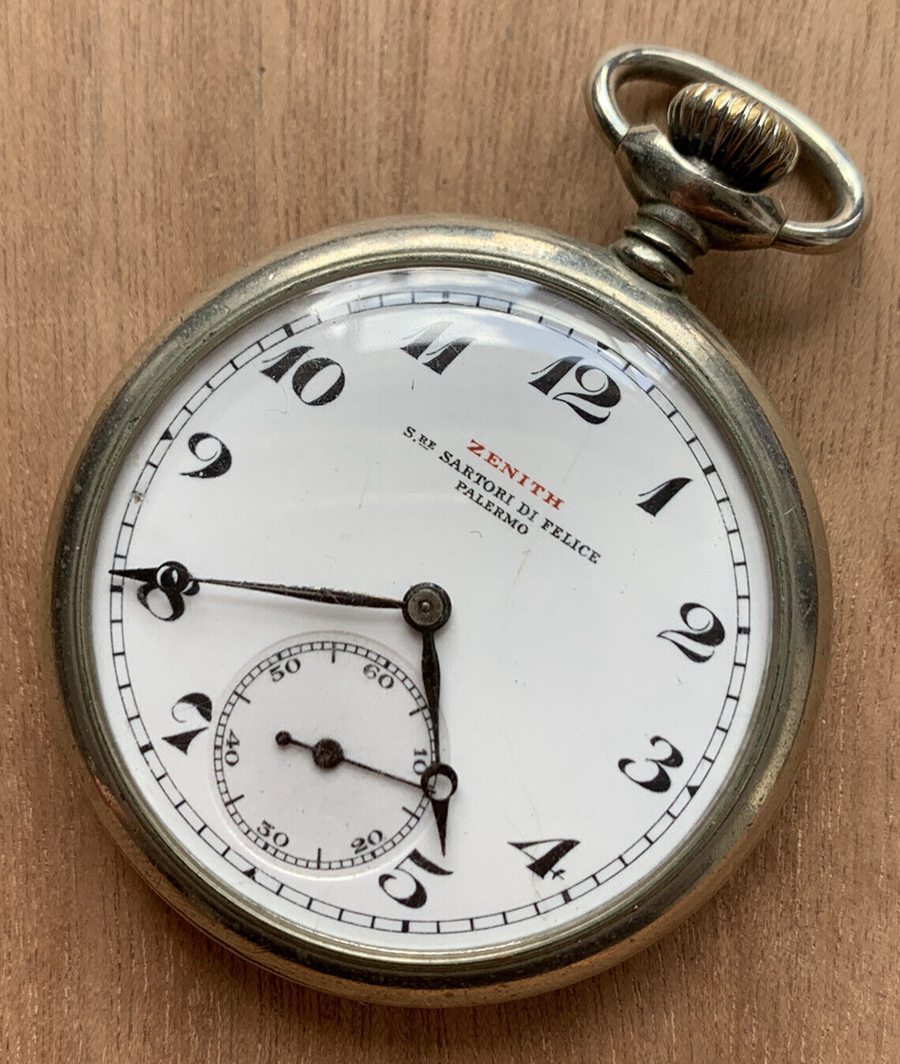
Zenith, a Swiss luxury watchmaker founded in 1865, gained global recognition for its precise and innovative timepieces. They built a stellar reputation for their pocket watches which featured:
- Fine detailing and distinct designs
- Reliable and accurate movements
- Advanced complications, including chronographs and tourbillons
As you consider Zenith’s antique pocket watches, bear in mind their dedication to watchmaking excellence and craftsmanship.
Identifying Antique Pocket Watches
Antique pocket watches are fascinating timepieces that have stood the test of time. If you have an antique pocket watch or are looking to purchase one, it is important to know how to identify it. Here are some key factors to consider when identifying antique pocket watches.
Types of Antique Pocket Watches
There are several types of antique pocket watches, including full hunter, half hunter, open face, and skeleton pocket watches. Full hunter pocket watches have a cover that completely encloses the watch face, while half hunter pocket watches have a cover with a small window that allows you to see the time without opening the cover. Open face pocket watches have no cover, while skeleton pocket watches have a see-through cover that allows you to see the inner workings of the watch.
Identifying the Manufacturer
The manufacturer of an antique pocket watch can often be identified by the watch’s serial number and logo. Many manufacturers, such as Elgin and Waltham, stamped their logo and serial number on the movement of the watch. Some manufacturers also engraved their logo and serial number on the inside of the watch case.
Identifying the Age and Rarity
The age and rarity of an antique pocket watch can be determined by several factors, including the materials used, the condition of the watch, and the number of jewels and adjustments. Older pocket watches are often made of gold or silver, while newer watches may be made of stainless steel. The rarity of a pocket watch can also be determined by its production numbers and the number of surviving examples.
Identifying the Jewel Count and Adjustments
The jewel count and adjustments of an antique pocket watch can also provide valuable information about the watch. The jewel count refers to the number of jewels used in the movement of the watch. Higher jewel counts generally indicate a higher quality watch. Adjustments refer to the precision of the watch’s movement and can include adjustments for temperature, isochronism, and position.
Identifying the Materials and Condition
The materials and condition of an antique pocket watch can also provide important information about the watch. Gold and silver pocket watches are often more valuable than stainless steel watches. The condition of the watch can also affect its value, with watches in excellent condition being more valuable than those in poor condition.
In summary, identifying an antique pocket watch requires attention to detail and knowledge of the watch’s type, manufacturer, age, rarity, jewel count, adjustments, materials, and condition. By considering these factors, you can accurately identify and value an antique pocket watch.
Determining the Value of Antique Pocket Watches
Antique pocket watches are fascinating pieces of history that can be worth a lot of money. However, determining the value of an antique pocket watch can be a challenging task. In this section, we will discuss the factors that affect the value of antique pocket watches, the valuation methods used by collectors, and the antique pocket watch value guide.
Factors That Affect the Value
Several factors can affect the value of an antique pocket watch. These factors include:
- Rarity: The rarer the watch, the more valuable it is.
- Brand: Watches from well-known brands such as Rolex, Omega, and Patek Philippe are generally more valuable.
- Condition: Watches in excellent condition are worth more than those in poor condition.
- Age: Older watches are often more valuable than newer ones.
- Material: Watches made from precious metals such as gold and silver are generally worth more than those made from brass or other materials.
- Features: Watches with unique features such as a full hunter case or a minute repeater are generally more valuable.
Valuation Methods
Collectors use several methods to value antique pocket watches. These methods include:
- Appraisal: An expert appraiser can provide an accurate valuation of an antique pocket watch.
- Online Pocket Watch Database: Collectors can use online pocket watch databases to research the value of their watches.
- Auctions: Auctions can provide an accurate valuation of a watch based on the price it sells for.
Antique Pocket Watch Value Guide
The value of an antique pocket watch can vary greatly depending on the factors mentioned above. However, there are some general guidelines that collectors can use to determine the value of their watches. Here is a general antique pocket watch value guide:
- $50-$200: Watches in poor condition or made from non-precious metals.
- $200-$500: Watches in fair condition made from precious metals.
- $500-$1,000: Watches in excellent condition made from precious metals.
- $1,000-$5,000: Watches with unique features such as a full hunter case or a minute repeater.
- $5,000 and up: Watches from well-known brands such as Rolex, Omega, and Patek Philippe.
In conclusion, determining the value of an antique pocket watch can be a challenging task. However, by considering the factors that affect the value, using the appropriate valuation methods, and following the antique pocket watch value guide, collectors can get an accurate valuation of their watches.
Buying and Selling Antique Pocket Watches
If you are interested in collecting antique pocket watches, or looking to sell one, there are a few things you should know to ensure a smooth transaction. Here are some tips on where to buy antique pocket watches, how to sell them, and how to avoid scammers and fake antique pocket watches.
Where to Buy Antique Pocket Watches
There are a few places you can look to buy antique pocket watches:
- Antique stores: Look for local antique stores in your area that specialize in vintage watches. You can also check online for antique stores that sell pocket watches.
- Online marketplaces: Websites like eBay and Etsy have a wide selection of antique pocket watches. Just be sure to check the seller’s feedback and ratings before making a purchase.
- Auctions: Attend local auctions or online auctions to find antique pocket watches. Keep in mind that auction prices can be unpredictable, so set a budget beforehand.
How to Sell Antique Pocket Watches
If you have an antique pocket watch you want to sell, there are a few options:
- Antique stores: Some antique stores buy antique pocket watches. Just be sure to get a few appraisals before selling to ensure you’re getting a fair price.
- Online marketplaces: Websites like eBay and Etsy allow you to sell antique pocket watches directly to buyers. Just be sure to take clear photos and provide detailed descriptions to attract buyers.
- Auctions: You can consign your antique pocket watch to a local or online auction house. Keep in mind that auction houses take a percentage of the sale price as commission.
Avoiding Scammers and Fake Antique Pocket Watches
Unfortunately, there are scammers out there who try to sell fake antique pocket watches. Here are some tips to avoid getting scammed:
- Do your research: Learn as much as you can about antique pocket watches before making a purchase. Know what to look for in terms of authenticity and condition.
- Ask for documentation: Ask the seller for any documentation they have on the pocket watch, such as a certificate of authenticity or a receipt from a previous sale.
- Check the serial number: Look up the serial number of the pocket watch to see if it matches the manufacturer and year it was made.
- Trust your gut: If something seems too good to be true, it probably is. Don’t be afraid to walk away from a sale if you have doubts about the authenticity of the pocket watch.
By following these tips, you can collect or sell antique pocket watches with confidence and avoid scams and fake antique pocket watches.
Final Thoughts
In conclusion, antique pocket watches are an excellent investment for collectors and enthusiasts alike. However, it is essential to be cautious when purchasing one, as scammers can easily cheat you with fake antiques.
To avoid being scammed, it is crucial to educate yourself on the basic terms related to pocket watch parts and the coveted brands. This will help you identify the watch, its features, and its materials correctly.
Furthermore, keep in mind that not all antique pocket watches are created equal. Some of the most valuable watches are railroad pocket watches because they were produced with government-required exacting standards to ensure they kept accurate time.
Lastly, when it comes to determining the value of an antique pocket watch, several factors come into play, such as the watch’s condition, rarity, and provenance. Therefore, it is essential to have the watch appraised by a reputable expert to get an accurate valuation.
In summary, by being cautious and knowledgeable, you can enjoy the beauty and history of antique pocket watches while making a wise investment.




